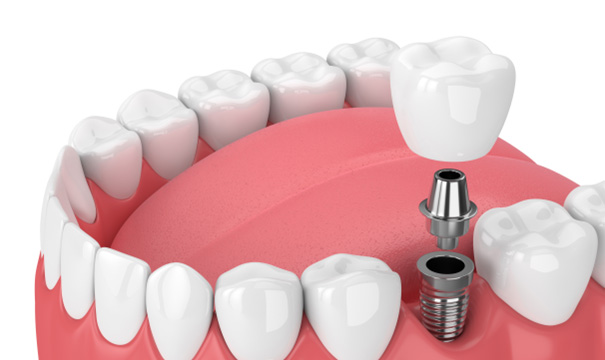Dental Implant Failure & Salvage – Boston, MA
Helping Preserve Your New Smile
Dental implants are an excellent solution for replacing missing teeth, helping rebuild your smile from the roots up. Known as one of the best tooth replacement options available, implants provide a natural feel and can deliver long-lasting results that often last a lifetime. Despite a success rate of over 95%, there is a slight risk of implant failure. If you notice any issues with your dental implant, it’s important to visit Turning Leaf Dental for dental implant failure and salvage treatment in Boston.
Why Do Dental Implants Fail?

One of the leading causes of dental implant failure is peri-implantitis, a type of gum infection that develops around the titanium post. It leads to the weakening of the jawbone and the destruction of the tissues supporting the implant. This condition is often the result of poor oral hygiene or existing periodontal disease, but other factors like certain medical conditions (such as osteoporosis and uncontrolled diabetes), physical trauma, and failed osseointegration can also contribute.
To prevent peri-implantitis, it’s important to maintain excellent oral hygiene and visit your dentist every six months for regular checkups and cleanings. Additionally, if you have a medical condition that could affect osseointegration, it’s important to discuss it with our team and your primary physician. We’ll work together to reduce the risk of implant failure and ensure the longevity of your dental implants.
Symptoms of a Failed Dental Implant

Dental implant failure doesn’t always occur immediately after surgery. Sometimes it can happen years down the road! It’s important to know what signs indicate it’s time to seek professional treatment. Some of the most common symptoms include:
- A loose dental implant
- Discomfort or pain
- Difficulty biting down or chewing
- Gum inflammation
- Receding gums surrounding the implant
How Dental Implant Salvage Works

If you’re experiencing issues with your dental implant, it’s important to contact our team right away. We’ll evaluate your mouth and assess your symptoms to identify the root cause and determine the appropriate treatment. Based on your situation, this could involve deep cleanings, scaling and root planing, antibiotics, or other infection control methods. The sooner you seek help, the better the chances we have of saving your dental implant.
